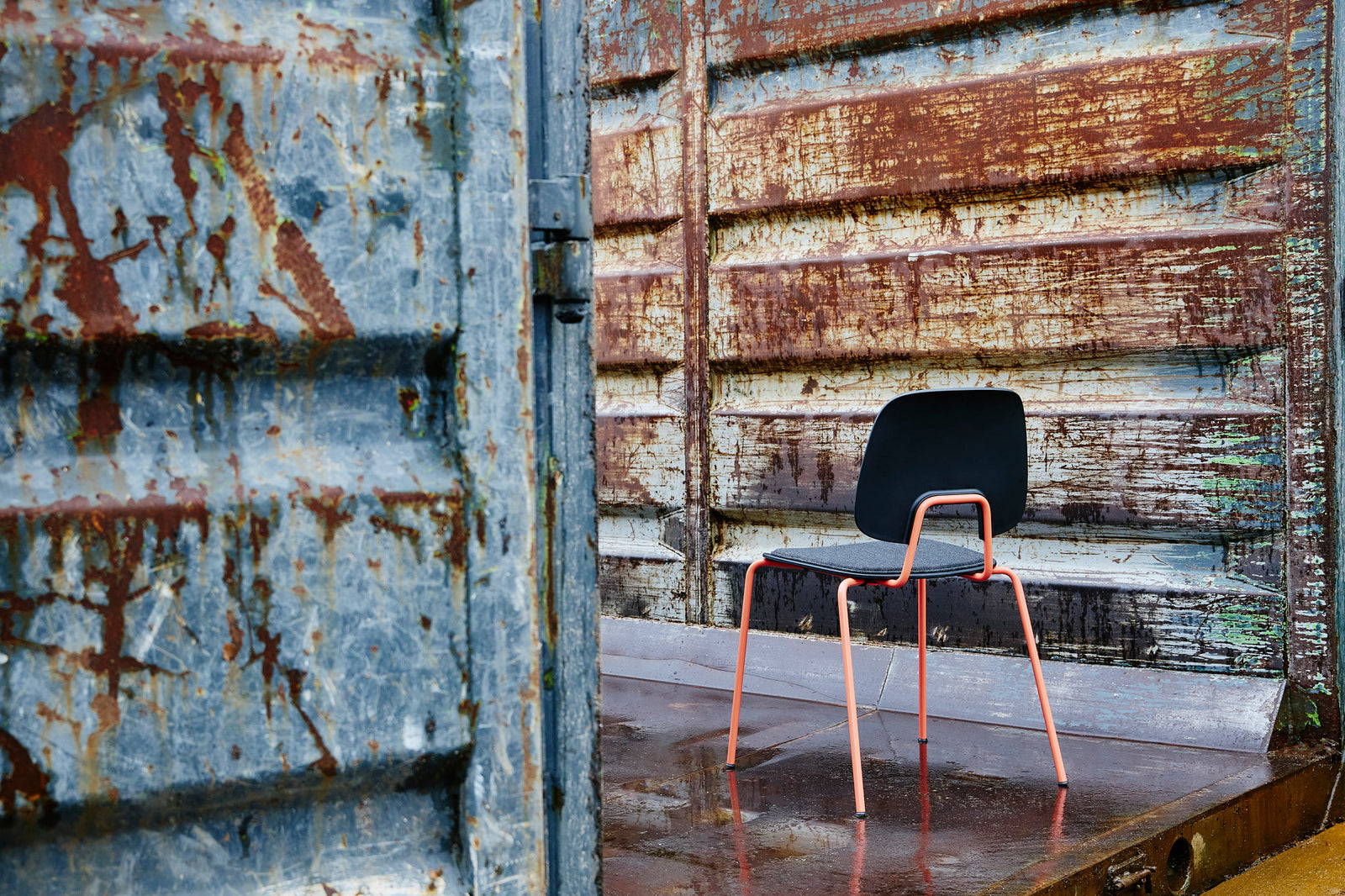IT companies using the R.U.M.- Chair of post consumer e-waste contribute to circular economy

In today’s technology-driven world, IT companies are increasingly recognizing the responsibility they hold not just in shaping innovations but also in contributing to a sustainable future. One of the simplest yet impactful changes that can be made is in the choice of office furniture, particularly when it comes to Sustainable chairs like the R.U.M.- Chair from Wehlers. Available in a sophisticated black finish, the R.U.M.- Chair is not only designed for comfort and support but also plays a significant role in reducing carbon footprints. Here’s how IT companies can make a difference by incorporating this sustainable piece of furniture into their workplaces in a R.U.M.- Chair made from the industry's own waste. Industry Circular Economy.
Michael Harboe CEO Virsabi, virsabi.com an IT- company focussed on augmented reality states:
"We enjoy the R.U.M.-chairs for our colleagues & customers presenting action towards a more sustainable future. I love the fact that the R.U.M. is made of our industry's waste materials, and that Wehlers collects them back for recycling after use. Full Circular Economy resulting in low footprint and materials for generations to come"
1. Sustainable Materials Matter
The R.U.M. Chair is crafted from post consumer waste materials that prioritize Circular Economy without compromising quality. By choosing office furniture made from recycled materials, IT companies can significantly reduce their environmental impact. The choice of the R.U.M. Chair reflects a commitment to green practices and encourages a culture of sustainability within the organization.
2. Reducing Waste with a Circular Economy Approach
Wehlers is dedicated to the principles of the circular economy, which emphasizes minimizing waste through thoughtful design and collecting back after use. The R.U.M. Chair’s design allows for easy disassembly and recycling, ensuring that it can be repurposed rather than ending up in a landfill. By opting for furniture that aligns with circular economy principles, IT companies can effectively contribute to waste reduction efforts. By this the sustainable goals of reducing carbon footprint may no longer be impossible fir the IT giants?
3. Enhanced Employee Comfort via Sustainability Leads to Productivity
Sustainable seating such as the R.U.M. Chair, supports consoius consumption among employees. When employees are comfortable & share a sence of purpose, they are more productive—a critical factor for any IT company. Increased productivity means less energy consumption per output, indirectly affecting the company’s overall carbon footprint. Investing in high-quality, sustainable furniture like the R.U.M. Chair can lead to long-term benefits for both the employees and the environment. So not ONLY footprint in the actual chair, but for the capacity utilization and output ratio will be improved.
4. Symbolizing Corporate Social Responsibility
By integrating sustainable products into their workplaces, IT companies send a strong message about their commitment to corporate social responsibility (CSR). The Keyboard Black R.U.M.- Chair symbolizes a proactive stance towards sustainability, allowing companies to showcase their values to clients, partners, and potential employees. This commitment can enhance brand loyalty and attract environmentally conscious businesses and customers.
5. Collaborative Workspaces Foster Innovative Solutions
The design of the R.U.M.- Chair not only supports individual work but also enhances collaborative spaces. When IT teams gather in comfortable environments, they are more likely to brainstorm creative solutions and innovative ideas. Collaboration can lead to developing more energy-efficient systems, software solutions, and practices that further reduce the company’s carbon footprint.
6. Education and Awareness
Incorporating options like the R.U.M. Chair into an office is a step towards educating employees about sustainability. As companies make greener choices about their office environment, they can foster discussions on sustainability practices in their work routines, encouraging a culture that values environmentally friendly habits both in and out of the office.





Leave a comment